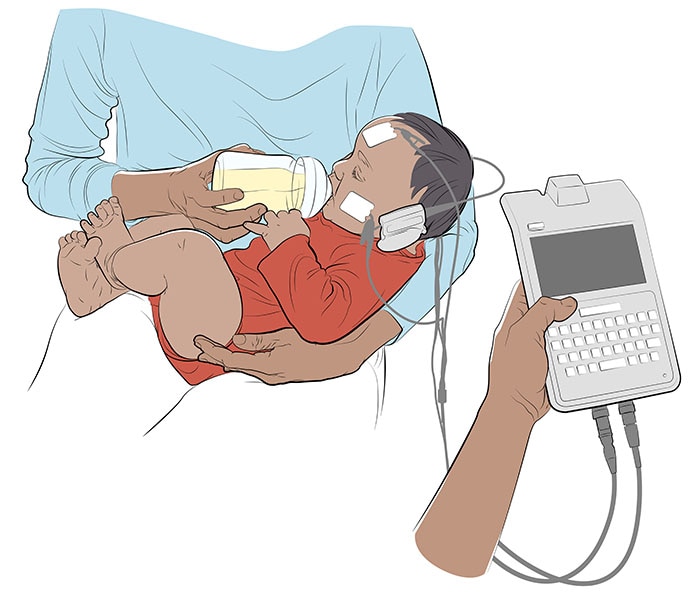Caring for Your Baby: Hearing Loss Related to Zika

Hearing loss has been found among some babies born to people with evidence of Zika virus infection during pregnancy. Read below to learn more about how Zika virus might affect your baby’s hearing and find out what you can do to get the care your baby needs.
Zika and Hearing Loss
Zika virus infection during pregnancy might cause a range of health problems, including hearing loss, in babies. Hearing loss can be mild to severe.
Signs and Symptoms of Hearing Loss
The signs and symptoms of hearing loss are different for each baby. Some babies might be diagnosed shortly after birth and some might be diagnosed at a later age. Even if your baby has passed a hearing screening before, it is important to look out for the following signs:
- Is not startled by loud noises
- Does not turn to the source of a sound after 6 months of age
- Does not say single words, such as “dada” or “mama” by 1 year of age
- Turns head when they see you but not if you only call out their name. This sometimes is mistaken for not paying attention or just ignoring, but could be the result of a partial or complete hearing loss.
- Seems to hear some sounds, but not others.
If You’re Concerned
It is important to let a doctor or healthcare provider know that your baby may have been exposed to Zika during pregnancy. It may be helpful to take notes or videos of your baby’s behavior to explain your concerns during the visit. The doctor may refer your baby to a specialist, such as an audiologist, to get their hearing and ears checked.
If you think there could be a problem with your baby’s hearing, talk to your baby’s doctor or healthcare provider about your concerns.
When to Check Your Baby’s Hearing
A newborn hearing screening is the first exam to determine if your baby might have hearing loss. If the screening test indicates that there might be a problem, a follow-up test is used to confirm the hearing loss and determine the severity. Nearly all newborns are screened for hearing problems before leaving the hospital. If your baby passes their hearing screening but displays concerning behavior, it is important that you express your concerns to your baby’s doctor or healthcare provider.
- By 1 month of age
- Your baby should receive a hearing screening.
- If you or your baby tested positive for Zika virus infection, or your baby has any abnormalities related to Zika, your baby should be screened by automated auditory brainstem response (automated ABR).
Treatment and Services for Hearing Loss
Hearing loss can affect a child’s ability to develop speech, language, and social skills. Treatment and intervention services can help a child with hearing loss. The type of treatment or intervention options, such as hearing aids, can vary depending on the severity of your baby’s hearing loss. Your baby will be evaluated by a pediatrician and hearing specialist before treatment options are determined. There are services for children from birth through 36 months of age called Early Intervention or Part C services. Even if your child has not been diagnosed with hearing loss, he or she may be eligible for early intervention and treatment services.
We are still learning about the effects of Zika on a baby’s ability to hear, as well as what treatments may improve hearing. It is important for you to work with your baby’s doctor or healthcare provider early to manage your baby’s care together.
Care for Your Baby
Babies with hearing loss need support as they grow and develop. A team of many different specialists may work together to evaluate and care for your baby. It is important to work with your baby’s doctor or healthcare provider to create a medical homeexternal icon to ensure your baby is receiving ongoing, coordinated care.
Stay in regular communication with the doctors and keep regular appointments. Make sure your baby is getting the recommended screenings and follow-up care. If you have concerns, be sure to talk with your baby’s doctor or healthcare provider.
For more resources to care for your baby, please visit